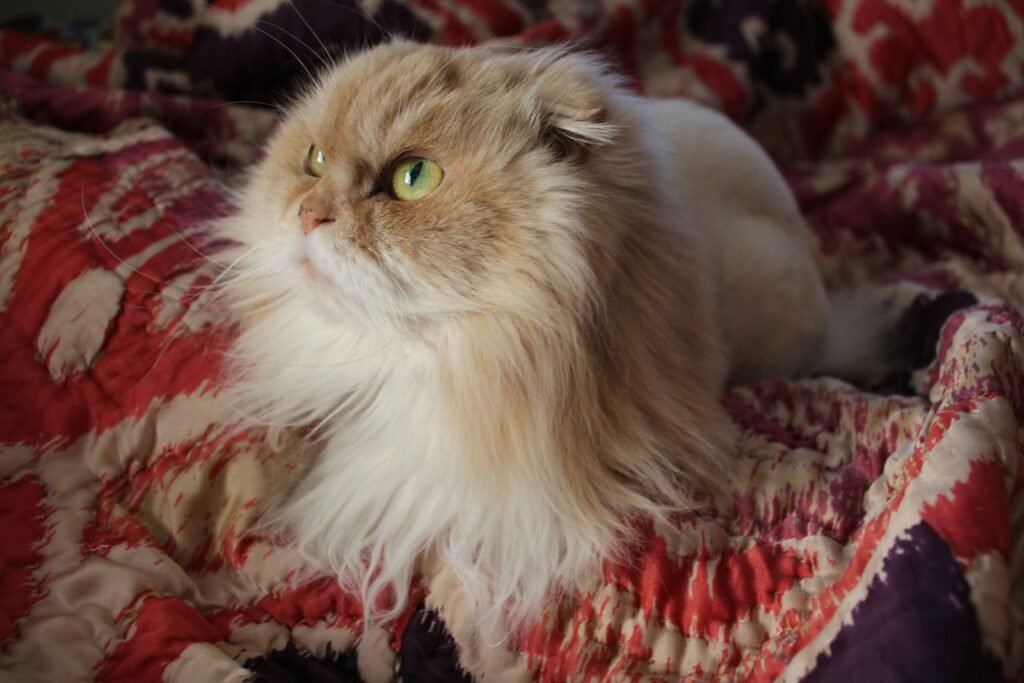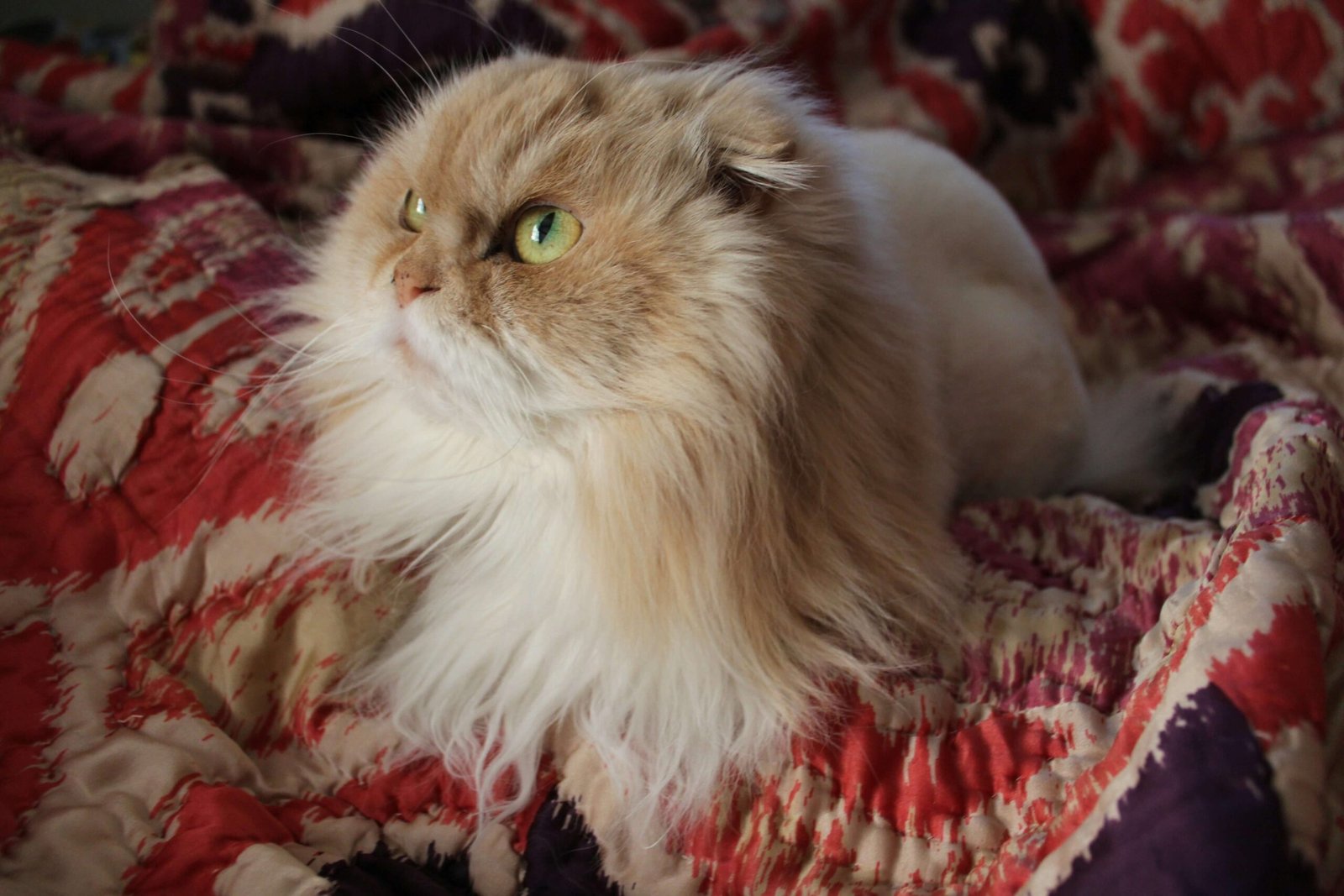Why Does My Cat Watch Me Sleep? Unraveling the Mystery
Have you ever woken up in the middle of the night, only to find your feline friend sitting quietly by your bedside, staring at you as if guarding a precious treasure? While this behavior might seem puzzling or even slightly unsettling at first, there are several fascinating reasons behind why your cat chooses to watch you while you sleep. Cats, being naturally curious and deeply connected to their human companions, have unique instincts and habits that drive this behavior. In this blog post, we’ll explore the science, psychology, and emotional bonds that explain why your furry companion finds such interest in your sleeping moments.
What’s Going On in Your Cat’s Mind?
Cats are complex creatures, and their actions often stem from a mix of instinct, curiosity, and affection. When it comes to watching you sleep, several factors might be influencing their behavior. Here’s a breakdown of what could be happening:
Guardian Instincts:
Cats are territorial animals, and they often view their humans as part of their “pack.” Watching you sleep may be their way of ensuring your safety.Curiosity About Your State:
Sleeping is a vulnerable state, and cats are naturally intrigued by changes in your behavior or routine. They might be trying to understand why you’re so still and quiet.Bonding Time:
Cats form strong attachments to their owners. Observing you while you rest could simply be their way of spending time with you, even when you’re not actively engaging with them.Hunger or Anticipation:
If your cat is used to being fed early in the morning, they might associate your sleeping with the upcoming mealtime.Comfort and Routine:
Cats thrive on routine. Seeing you in a relaxed state might provide them with a sense of calm and familiarity.
Understanding these motivations can help you appreciate your cat’s behavior as a sign of care and connection rather than something strange or intrusive.
The Science Behind Feline Behavior
Cats are mysterious creatures, but science offers some insights into why they exhibit certain behaviors, including watching us sleep. Below are key points backed by research and observations:
Nocturnal Nature:
Cats are crepuscular, meaning they are most active during dawn and dusk. Their natural rhythms might align with times when you’re asleep, making them more alert and observant.Sensory Awareness:
Cats have heightened senses, including excellent night vision and acute hearing. This allows them to notice subtle movements or sounds you make while sleeping.Social Structure:
Unlike dogs, cats are not pack animals, but they do form social bonds. Watching you sleep could be a reflection of their attachment to you as a member of their social group.Energy Conservation:
Cats conserve energy during the day and become more active at night. Observing you while you rest might be part of their nighttime routine.Emotional Security:
Being near you provides cats with a sense of security. Watching you sleep reassures them that their environment is safe.
These scientific explanations highlight how deeply ingrained certain behaviors are in your cat’s nature, making their actions both logical and endearing.
Check this guide 👉Why Is My Cat Staring at Me? Best 7 Behavior Tips!
Check this guide 👉Why Does My Cat Put His Butt in My Face? Best 7 Tips!
Check this guide 👉Why Does My Cat Put His Butt in My Face? Best 7 Tips!

Reasons Cats Watch You Sleep | How You Can Respond |
|---|---|
Guardian instincts | Provide a cozy spot near your bed for them to feel included. |
Curiosity about your state | Talk softly to reassure them everything is fine. |
Bonding time | Spend quality playtime during the day to strengthen your bond. |
Hunger or anticipation | Establish a consistent feeding schedule to reduce anxiety. |
Comfort and routine | Maintain a predictable bedtime routine to keep them calm. |
Signs Your Cat Feels Safe Around You
When your cat watches you sleep, it’s often a sign that they trust you and feel secure in your presence. Here are some indicators that your feline friend views you as a source of comfort:
Purring:
If your cat purrs while observing you, it’s a clear sign of contentment and relaxation.Slow Blinking:
Cats communicate affection through slow blinks. If your cat does this while watching you, they’re expressing love.Closeness:
Cats prefer to stay close to people they trust. If your cat positions themselves near you, it shows they feel safe.Kneading:
This behavior, often seen in kittens, indicates comfort and happiness. If your cat kneads nearby, they’re likely feeling at ease.Following You:
Cats that follow you around, even to bed, see you as a central figure in their life.
Recognizing these signs can deepen your understanding of your cat’s emotions and strengthen your bond further.
Tips for Managing Your Cat’s Nighttime Behavior
If your cat’s habit of watching you sleep disrupts your rest, there are steps you can take to manage their behavior without compromising your relationship:
Create a Cozy Space:
Set up a comfortable bed or perch near yours so your cat feels close but has their own space.Engage in Playtime:
Tire your cat out with interactive toys before bedtime to help them settle down.Establish a Routine:
Cats thrive on consistency. Stick to regular feeding and play schedules to regulate their activity levels.Use Calming Techniques:
Consider using calming sprays or diffusers designed for pets to reduce nighttime anxiety.Redirect Attention:
If your cat tries to wake you, gently redirect their focus to a toy or treat dispenser.
By implementing these strategies, you can create a peaceful environment for both you and your cat.
Signs Your Cat is Trying to Communicate
Cats are masters of non-verbal communication, and their behavior while watching you sleep can often carry subtle messages. Here are some signs that your cat might be trying to “talk” to you:
Vocalizations:
If your cat meows softly or chirps while observing you, they might be seeking attention or expressing concern.Tail Movements:
A flicking or twitching tail could indicate curiosity or mild irritation if something in the environment is bothering them.Head Bumps:
Cats often use head bumps as a way to mark you with their scent and show affection.Paw Taps:
Gently tapping your face or arm may be their way of checking if you’re still “alive” or simply asking for interaction.Staring Without Blinking:
Prolonged eye contact combined with no blinking can signal trust and deep connection.
Understanding these signals can help you interpret your cat’s intentions and respond appropriately, strengthening your bond.
How Cats Show Affection While Watching You Sleep
When your cat watches you sleep, it’s often an expression of love and attachment. These behaviors highlight how cats demonstrate their affection in unique ways:
Snuggling Close:
Cats that lie right next to you while you sleep feel safest when near their favorite human.Grooming Themselves Nearby:
Cats groom themselves around you as a sign of comfort and inclusion in their personal space.Soft Purring:
The rhythmic sound of purring not only soothes them but also serves as a gesture of contentment.Nudging Your Hand:
Cats nudge sleeping hands or feet to initiate touch or remind you they’re there.Shadowing Your Movements:
Even during sleep, cats track your breathing patterns or slight movements, showing attentiveness.
These small acts of affection underscore the deep emotional connection cats form with their owners.
Why Cats Feel Comfortable Observing from Afar
While some cats prefer physical closeness, others enjoy observing their humans from a distance. This behavior stems from their natural instincts and personality traits:
Natural Instincts:
Cats are naturally cautious predators, and observing from a safe distance allows them to assess their surroundings without feeling threatened.Personality Differences:
Some cats are more independent by nature and prefer watching rather than direct interaction.Environmental Awareness:
Cats monitor their environment constantly, and watching you ensures they know what’s happening in their territory.Energy Conservation:
By staying slightly removed, they conserve energy while still keeping an eye on you.Feeling Secure:
A distant yet attentive stance indicates they trust you enough to relax while remaining vigilant.
This behavior reflects both their wild ancestry and individual personalities, making each cat’s approach uniquely fascinating.
FAQ
Is it normal for my cat to watch me sleep?
Yes, it’s completely normal. Cats are naturally curious and form strong bonds with their owners, which can lead to this behavior.
Should I be concerned if my cat stares at me while I sleep?
Not necessarily. It’s usually a sign of affection or curiosity. However, if accompanied by unusual behavior like aggression or vocalization, consult a vet.
How can I stop my cat from disturbing my sleep?
Try creating a separate sleeping area for your cat, engaging in play before bed, and maintaining a consistent routine.
Do cats watch humans because they think we’re weak?
No, cats don’t perceive humans as weak. Instead, they see us as part of their family and want to ensure our well-being.
Can I train my cat to leave me alone at night?
Yes, with patience and consistency, you can use positive reinforcement techniques to encourage desired behaviors.
Celebrating the Unique Bond Between You and Your Cat
Watching you sleep is just one of the many ways your cat expresses their affection, curiosity, and protective instincts. By understanding the reasons behind this behavior, you can foster an even stronger connection with your feline companion. Whether it’s providing a cozy spot for them to rest, engaging in playful activities, or simply appreciating their presence, every interaction deepens the bond you share. So the next time you catch your cat gazing at you while you snooze, remember—it’s their way of saying, “I care.”
Do Cats Have Taste Buds? Best 7 Expert Tips! – Discover how cats experience flavors and why their taste is so unique.
Do Dogs Have Taste Buds? Best 7 Expert Tips! – Discover how dogs experience taste, their preferences, and what it means for their diet and health.
Can Cats Taste Sweet? Best 7 Expert Tips! – Discover why cats can’t taste sweetness, how it affects their diet, and tips to keep them healthy and happy.
Can Dogs Taste Sweet? Best 7 Expert Tips! – Discover how dogs perceive sweetness, which foods are safe, and tips to manage their sweet cravings responsibly.





